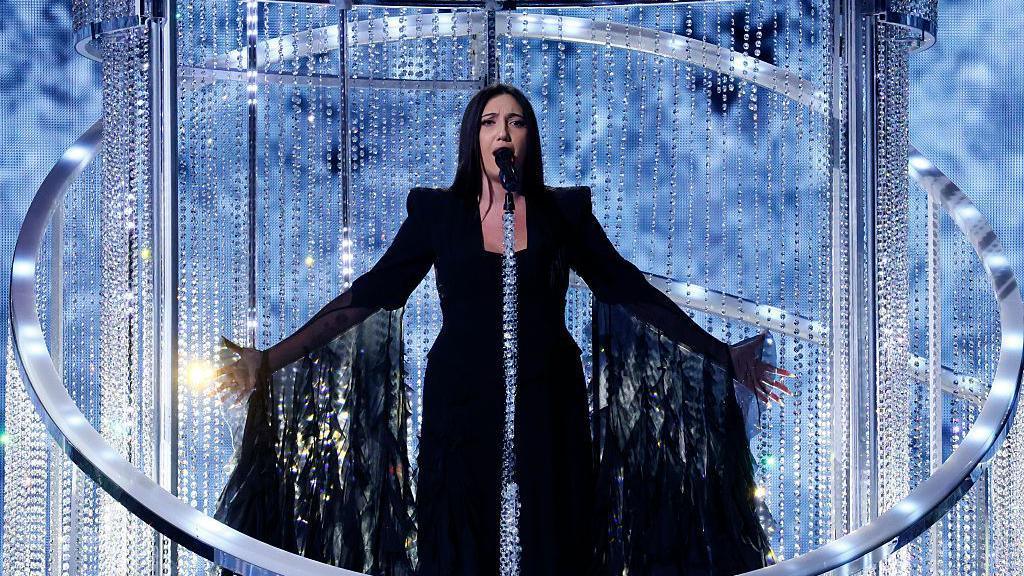A vote regarding Israel’s potential participation in the upcoming Eurovision Song Contest has been deferred by organizers.
The European Broadcasting Union (EBU) cited “recent developments in the Middle East” as the reason for postponing the virtual meeting, initially slated for November, where the vote was to occur.
The EBU stated that Israel’s participation would instead be addressed during an in-person meeting in December, though it remained unclear whether a vote would still take place at that time.
The question of Israel’s involvement in Eurovision has sparked debate among participating nations, primarily due to the conflict in Gaza.
On Monday, Hamas released all 20 living Israeli hostages as part of an exchange for hundreds of Palestinian prisoners held by Israel, following a ceasefire that began on Friday.
The EBU released a statement noting: “In light of recent developments in the Middle East, the EBU’s executive board (meeting on October 13) agreed there was a clear need to organise an open and in-person discussion among its members on the issue of participation in the Eurovision Song Contest 2026.”
“Consequently, the board agreed to put the issue on the agenda of its ordinary winter general assembly, which will be taking place in December, rather than organising an extraordinary session in advance,” the statement continued.
Last month, the EBU announced its intention to invite 68 member countries to share their perspectives on Israel’s potential participation at a general assembly meeting in November.
ORF, Austria’s national broadcaster and host of the 2026 contest, expressed its support for the EBU’s decision.
Previously, ORF had urged countries not to boycott the upcoming Vienna contest, with Foreign Minister Beate Meinl-Reisinger asserting that Eurovision and the arts, in general, are “not the appropriate arenas for sanctions.”
Spain, Ireland, Slovenia, Iceland, and the Netherlands have all indicated they would consider boycotting next year’s contest if Israel participates.
Dutch broadcaster AvroTros stated last month that its position would remain unchanged even if a ceasefire in Gaza were achieved.
“If a ceasefire is reached in the near future or the conflict develops differently, that will not change our position for 2026. We will reassess participation in subsequent years, depending on the circumstances at that time,” the broadcaster affirmed in a statement.
The BBC has reached out to Israel’s national broadcaster, Kan, for comment.
In September, Kan defended its right to participate, stating it was “one of the contest’s longstanding, popular and successful participants.”
Israel’s act, Yuval Raphael, secured the largest combined public vote at the most recent Eurovision Song Contest in May, finishing second overall.
However, the inclusion of jury votes resulted in Austria being declared the overall winner.
The director general says the corporation is “aware of the concerns” around Israel’s participation.
Israel’s continued participation in the contest has been controversial due to the ongoing Gaza war.
Vietnam was among 23 countries competing in a glitzy Russian song contest, revived three years after Russia was banned from Eurovision.
The songwriter said people in the UK and Ireland are ‘equally disgusted by what’s going on in Gaza’.
The Netherlands follows Ireland in saying it can “no longer justify Israel’s inclusion” in the event.

